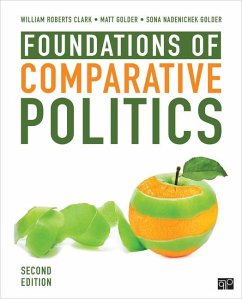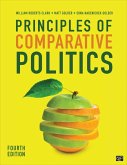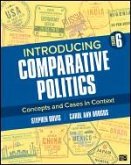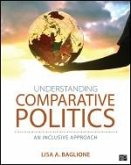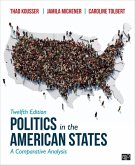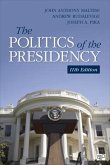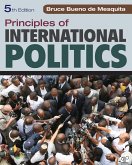Foundations of Comparative Politics goes beyond individual country studies, adopting a thematic approach to provide a comprehensive, cross-national understanding of democracy and dictatorship. The Second Edition′s condensed, accessible format introduces students to key questions in comparative politics and enables them to wrestle intellectually with the conditions and effects of power dynamics.
Hinweis: Dieser Artikel kann nur an eine deutsche Lieferadresse ausgeliefert werden.
Hinweis: Dieser Artikel kann nur an eine deutsche Lieferadresse ausgeliefert werden.

